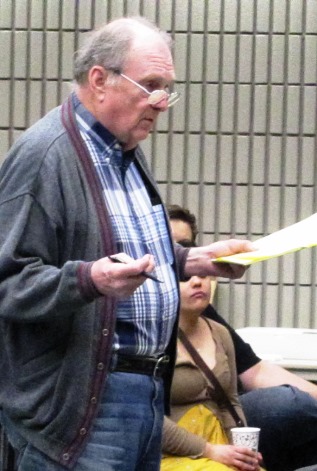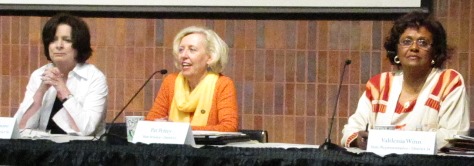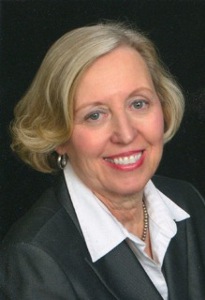
by Mary Rupert
Wyandotte County legislators tackled the subject of school finance legislation that passed this session at a public forum Saturday at the West Wyandotte Library, 1737 N. 82nd, Kansas City, Kan.
The forum was sponsored by the Kansas City, Kan., Area Chamber of Commerce. A school finance bill passed and is on the governor’s desk, awaiting his signature.
While the school districts did get an increase of $73 million statewide, the legislative session itself was not particularly good for issues that were supported by Wyandotte County residents and the local boards, according to legislators.
“Draining” was how Rep. Tom Burroughs described the legislative session. “Strenuous,” said Rep. Louis Ruiz, “the most bizarre since I’ve been here.” And Rep. Valdenia Winn said it was “a little challenging,” but she will “continue to fight for the people.”
Some of the legislators agreed that the trend is to chip away at benefits for the needy and at local control.
Jim Birmingham asked the legislators at the forum about some of this year’s education issues, including allowing districts to increase local property taxes, and eliminating due process for teachers.

School funding
Sen. Pat Pettey, D-6th Dist., said legislators were biding their time for much of the session, waiting for the Kansas Supreme Court ruling to come down.
The education funding bill that passed directs a commission to study efficiency. Sen. Pettey said.
Public education is the big money cost in the state government, she said, and in any business, employees are the biggest expense.
Traditionally, the state derives most of its income from income taxes, sales taxes and property taxes. In the last few years, the income tax revenues have been reduced in a plan that the governor had hoped would lead to more economic development and more companies locating in the state.
However, if state revenues decline, a shift is inevitable to make local taxpayers pick up the slack through local property taxes, according to local legislators.
“We’re not going to be able to pay our bills in another year because of the changes in the tax laws,” Sen. Pettey said. “We are constantly going to be saying, ‘Hey, you’ve got to do this job better, but with less money.’”
When the state is not going to pick up its part of the pie, the financial burden will fall to the local units of government to increase the local option budget to pay more for public education.
The court ruling allowed districts already at 31 percent of their Local Option Budget to go to 33 percent without an election, but none of the school districts in Wyandotte County are at 31, so if they want to increase it, they will have to have an election, she said.
“This question between the haves and the have-nots is never going to go away, it’s always going to continue,” Sen. Pettey said.
A new court case has been brought by Johnson County parents to take away the cap on the LOB, she said.
In the long run, she said, if there’s not going to be any money, everybody is going to be biting the other person’s hand to get their share, and they’re not going to get any money.
Due process
The loss of due process for teachers also drew some legislators’ comments.
Sen. Pettey pointed out there were already procedures in place to terminate teachers that could be used, instead of eliminating due process. Wanting to eliminate due process – “I call it whining and not wanting to do your job,” she said. “If you think a teacher is not doing their job, then you should be doing your job to help them improve or help them move on to a new location,” Sen. Pettey said.
Bill Reardon, a former state representative who is a lobbyist for the Kansas City, Kan., Public Schools, said those in favor of eliminating due process had said there were hundreds of these cases a year where districts couldn’t fire bad teachers.
Out of 286 districts, with 50,000 plus teachers, there have only been 10 cases a year asking for these due-process hearings, Reardon said.
Reardon said the Kansas City, Kan., district is currently looking at the possibility of continuing due process for teachers even if this bill is signed into law and due process is not required.

‘Dark places’
Rep. Val Winn, D-32nd Dist., said a number of legislators were simply going along with the wishes of some big businesses and organizations such as Americans for Prosperity to shrink the size of state government through tax cuts, so there is no money there.
Rep. Winn said at one point in the legislative discussion, a state representative from another county went to the microphone and proposed to include a tax credit, “here’s $10 million for scholarships to private schools, because those Title I schools are dark places of lack of opportunity.” Rep. Winn said there may be some reasons why some Title I schools are not achieving, but it wasn’t because they were “dark places.”
“I could have really come unglued the night we passed that,” she said. “I had to put my hand over my head to make sure I was breathing.”
Tax credits to private school students, allowing districts to increase local taxes without a vote of the people, and taking due process rights from teachers were three areas of concern for her.
As far as the elimination of due process, Rep. Winn said school districts already can fire bad teachers with the current laws. But with lack of due process, then personal vendettas can be carried out, she believes.
“It’s a right that individuals in the United States, based on our constitution, should support, not try to successfully erode,” she said. “The smart thing for Gov. Brownback to do would be to line-item veto that.”
Teachers should recognize there is an attack on them, mobilize and vote these people out, Rep. Winn said.
Education and the local economy
Rep. Kathy Wolfe Moore, D-36th Dist., said many Johnson County legislators ask why they shouldn’t be able to fund their schools, as they can afford it, and they want the best schools. Why shouldn’t they take the cap off the LOB?
For Wyandotte County, it’s important for that not to happen, she said.
“If they can fund their communities to the tune of whatever they like to, it becomes a different class of school. They’re able to have better facilities, pay their teachers more, pay more for curriculum. Because we’re situated right next door to Johnson County, right away it becomes a great disparity.”
Rep. Wolfe Moore said Wyandotte County finally has a housing market that’s coming out of the ground, and one of the first things people look at is the schools when they’re choosing housing.
“If we have a school district right next door to this county whose schools are far superior because of the financial wherewithal, then our community is going to suffer,” she said. “It might not mean as much to a county out in the middle of the state.”
But here it would be a terrible effect, she said.
One mill in Wyandotte County yields $600,000, while one mill in Johnson County yields $2.3 million in tax revenue, Rep. Winn said.
Sen. Pettey said over the last several years, the 32 mills statewide for education funding have now been reduced to 20 mills.
The argument from Johnson County is that it sends the largest amount of money to the state in taxes, therefore it should receive those dollars back. That view is not shared by all the other counties, however.
“That pot is for the whole state to have quality education no matter where you live in the state of Kansas,” Sen. Pettey said.
Rep. Winn pointed out that both Wyandotte and Johnson counties received funding back besides education funding, including economic development funding at Village West here, and millions of bioscience development dollars in Johnson County.
Sen. Pettey believes the larger picture is that the entire state would benefit from having quality education.
“The easiest way out of poverty is through education,” she said. “So if we don’t want to see poverty increasing in Wyandotte County or the state of Kansas, then we have to be able to work to have the best education and to help our students stay in school, and that isn’t cheap. But the results are the most important thing, because we end up paying for it at the end if we don’t keep them in school.”
“We keep our eye on the ball at all times and realize these are direct hits against those most in need, which would be our county,” Sen. Pettey said.
All of the punitive pieces went onto the bill in the Kansas Senate after 11 o’clock at night, in a session that went until 2:30 in the morning, she said. Some of those issues, such as due process, had never had a hearing, never been introduced during the session, she said. That process lacked transparency and openness, she said.
Back to the basics
Attending the session, Mary Ann Flunder, a member of the Kansas City Kansas Community College Board of Trustees, urged the schools to get back to the basics because some of the students are lost when they get to college.
Reardon said that in the past, the students were passing the state assessment but some were not yet ready for college work. Then, the school district applied for a waiver to allow it to give a harder test, the ACT. It was part of an effort to increase academic performance in the district.
“The scores have not been good this past year,” he said. “It has been a reality check for our kids and our teachers, that they are not meeting what they need. I admire the district for doing that.”
The district was willing to take a more difficult course, knowing initially that it was not going to do as well, he said. But the different assessment test and the plan that was announced last year sets the district on a course toward more improvement.

